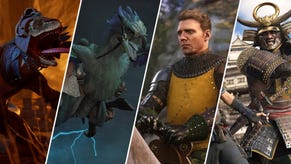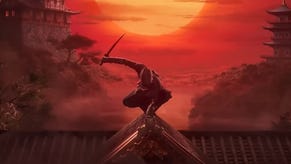Assassin's Creed Shadows' never-ending discourse has ended up reaching the Japanese government, but, no, it probably won't lead to anything
Just because some politicians have had an exchange about a thing, that doesn't necessarily mean Ubisoft's in any kind of actual trouble.
Some Japanese government ministries have responded to a request for their views on Assassin's Creed Shadows's apparent historical inaccuracies. Basically, their responses don't exactly comprise part of a big or heated debate, all they've seemigly done is either decline to comment, or wheel out their generic response when it comes to video games.
If you're out of the loop, there's been a lot of chatter about potential historical innacuracies in the game, with any legitimate concerns from Japanese folks being drowned in a sea of outrage from some western players raging against diversity in video games. The latter faction has largely just been yelling about whether the game's black protagonist - Yasuke - was actually a samurai in real life, something that doesn't really matter anyway in the context of Shadows, since, you know, this is a work of fiction that's clearly labelled as such, as Ubisoft alluded to in a statement yesterday.
Well, now the whole thing has been brought up to a few Japanese ministries, as reported by Sankei (good spot, GamesRadar)
How've they responded? Well, foreign ministry simply said this wasn't a matter of concern to it, and the ministry of economy, trade and industry said it'd refrain from commenting on individual games. The only other response came from the education ministry, which responded that, when it comes to video games and potential effects on children: "in general terms, careful action is required when content is suspected to be contrary to public order and morals".
As Jeffrey J. Hall, a lecturer "specializing in Japan's Politics/Nationalist Activism/History Disputes/Pop Culture" at Kanda University of International Studies has pointed out, these responses are a bit of a formality, especially since the Japanese goverment doesn't tend to censor works of historical fiction just for not being historically accurate. Hall cites "nudity or extreme violence" as the only kind of content that might be censored, and therefore likely being what the education ministry's alluding to here in its acknowledgment of what the process is if a game is deemed to be "contrary to public order and morals".
Another factor worth considering is that the Japanese politician who asked these minstries for their opinions on the game - or more the discourse surrounding it - is Satoshi Hamada of The NHK Party, a right-wing organisation founded on the issue of opposing TV licence fees. Hall cites this as a "tiny party with almost zero practical political influence in Japan", and it had its status as a national political party revoked earlier this year, and had bankruptcy proceedings commenced on it by the Tokyo District Court in March.
So yeah, this isn't exactly a huge deal.








